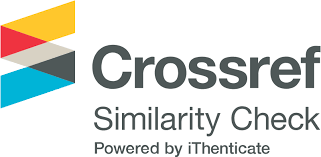PERSONALIZATION VS. PRIVACY: CONSUMER PERCEPTION OF TARGETED ADVERTISING ON SOCIAL MEDIA PLATFORMS
DOI:
https://doi.org/10.59415/mjacs.v3i3.263Keywords:
Celebrity endorsement, advertising, consumer behaviour, brand perception, marketing strategies, purchasing decisions, credibility, consumer buying decision process, innovation, customer experience, automation, efficiency, business operations, robotics, ethical considerations, workforce implications, and future trends., social media marketing, Consumer, Buying Behavior, Online Shopping, ProductAbstract
This study investigates the evolving consumer perceptions of targeted advertising on social media platforms, emphasizing the nuanced trade-off between the appeal of personalization and the increasing concerns surrounding privacy. As digital platforms leverage user data to deliver customized content, a tension emerges between user convenience and data vulnerability. To explore this balance, a mixed-methods approach was adopted involving 415 active social media users from five major cities in Tamil Nadu, India. Data were collected through structured questionnaires and analyzed using statistical tools including descriptive statistics, t-tests, chi-square tests, correlation analysis, and regression models.
The results revealed that 68% of respondents prioritize privacy over the benefits of personalization, with younger participants showing a relatively higher inclination towards personalized advertisements. Despite initial assumptions, education level did not significantly influence privacy concerns. Furthermore, the frequency of social media use demonstrated minimal predictive power regarding acceptance of targeted advertising. These findings suggest that while personalization remains a valued feature for some demographics, heightened awareness and discomfort around data usage are growing across user groups.
This study addresses a critical research gap by integrating demographic variables, psychological attitudes, and user behavior to evaluate how these factors collectively shape consumer trust and acceptance of targeted ads. The implications are especially relevant in the current context of increasing digital surveillance and evolving regulatory frameworks. Recommendations call for enhanced transparency in data usage policies, development of user-centric privacy controls, investment in digital literacy campaigns, and the adoption of ethical, non-intrusive advertising strategies. Ultimately, this research contributes actionable insights for marketers, platform developers, and policymakers seeking to design responsible advertising systems that align with user expectations and safeguard personal data.
Downloads
References
Aguirre, E., Mahr, D., Grewal, D., De Ruyter, K., & Wetzels, M. (2014). Unraveling the Personalization Paradox: The Effect of Information Collection and Trust-Building Strategies on Online Advertisement Effectiveness. Journal of Retailing, 91(1), 34–49. https://doi.org/10.1016/j.jretai.2014.09.005 DOI: https://doi.org/10.1016/j.jretai.2014.09.005
Bakare, S., Eneh, N., Akpuokwe, C., & Adeniyi, A. (2024). DATA PRIVACY LAWS AND COMPLIANCE: A COMPARATIVE REVIEW OF THE EU GDPR AND USA REGULATIONS. Computer Science & IT Research Journal, 5(3), 528–543. https://doi.org/10.51594/csitrj.v5i3.859 DOI: https://doi.org/10.51594/csitrj.v5i3.859
Bouke, M. A., Abdullah, A., Alshatebi, S. H., Zaid, S. A., & Atigh, H. E. (2023). The intersection of targeted advertising and security: Unraveling the mystery of overheard conversations. Telematics and Informatics Reports, 11, 100092. https://doi.org/10.1016/j.teler.2023.100092 DOI: https://doi.org/10.1016/j.teler.2023.100092
Chen, S., Wu, Y., Deng, F., & Zhi, K. (2023). How does ad relevance affect consumers’ attitudes toward personalized advertisements and social media platforms? The role of information co-ownership, vulnerability, and privacy cynicism. Journal of Retailing and Consumer Services, 73, 103336. https://doi.org/10.1016/j.jretconser.2023.103336 DOI: https://doi.org/10.1016/j.jretconser.2023.103336
De Keyzer, F., Dens, N., & De Pelsmacker, P. (2021). How and When Personalized Advertising Leads to Brand Attitude, Click, and WOM Intention. Journal of Advertising, 51(1), 39–56. https://doi.org/10.1080/00913367.2021.1888339 DOI: https://doi.org/10.1080/00913367.2021.1888339
De Keyzer, F., Dens, N., & De Pelsmacker, P. (2022). Let’s get personal: Which elements elicit perceived personalization in social media advertising? Electronic Commerce Research and Applications, 55, 101183. https://doi.org/10.1016/j.elerap.2022.101183 DOI: https://doi.org/10.1016/j.elerap.2022.101183
Goldfarb, A., & Tucker, C. (2010a). Online Display Advertising: Targeting and Obtrusiveness. Marketing Science, 30(3), 389–404. https://doi.org/10.1287/mksc.1100.0583 DOI: https://doi.org/10.1287/mksc.1100.0583
Goldfarb, A., & Tucker, C. E. (2010b). Privacy Regulation and Online Advertising. Management Science, 57(1), 57–71. https://doi.org/10.1287/mnsc.1100.1246 DOI: https://doi.org/10.1287/mnsc.1100.1246
Hayes, J. L., Brinson, N. H., Bott, G. J., & Moeller, C. M. (2021). The Influence of Consumer–Brand Relationship on the Personalized Advertising Privacy Calculus in Social Media. Journal of Interactive Marketing, 55(1), 16–30. https://doi.org/10.1016/j.intmar.2021.01.001 DOI: https://doi.org/10.1016/j.intmar.2021.01.001
Helmond, A., Nieborg, D. B., & Van Der Vlist, F. N. (2019). Facebook’s evolution: development of a platform-as-infrastructure. Internet Histories, 3(2), 123–146. https://doi.org/10.1080/24701475.2019.1593667 DOI: https://doi.org/10.1080/24701475.2019.1593667
Helsloot, L. J., Erkin, Z., & Tillem, G. (2017). AHEad: Privacy-preserving online behavioural advertising using homomorphic encryption. 1–6. https://doi.org/10.1109/wifs.2017.8267662 DOI: https://doi.org/10.1109/WIFS.2017.8267662
Ho, S. Y., & Bodoff, D. (2014). The Effects of Web Personalization on User Attitude and Behavior: An Integration of the Elaboration Likelihood Model and Consumer Search Theory. MIS Quarterly, 38(2), 497–520. https://doi.org/10.25300/misq/2014/38.2.08 DOI: https://doi.org/10.25300/MISQ/2014/38.2.08
Iwanow, H., Mceachern, M. G., & Jeffrey, A. (2005). The influence of ethical trading policies on consumer apparel purchase decisions. International Journal of Retail & Distribution Management, 33(5), 371–387. https://doi.org/10.1108/09590550510596740 DOI: https://doi.org/10.1108/09590550510596740
Juels, A. (2001). Targeted Advertising ... and Privacy Too (pp. 408–424). springer berlin heidelberg. https://doi.org/10.1007/3-540-45353-9_30 DOI: https://doi.org/10.1007/3-540-45353-9_30
King, N. J., & Raja, V. T. (2012). Protecting the privacy and security of sensitive customer data in the cloud. Computer Law & Security Review, 28(3), 308–319. https://doi.org/10.1016/j.clsr.2012.03.003 DOI: https://doi.org/10.1016/j.clsr.2012.03.003
Kox, H., Straathof, B., & Zwart, G. (2017). Targeted advertising, platform competition, and privacy. Journal of Economics & Management Strategy, 26(3), 557–570. https://doi.org/10.1111/jems.12200 DOI: https://doi.org/10.1111/jems.12200
Mandal, A., Montgomery, H., Roy, A., & Mitchell, J. (2017). Privacy for targeted advertising. 3, 438–443. https://doi.org/10.1109/cns.2017.8228673 DOI: https://doi.org/10.1109/CNS.2017.8228673
Marotta, V., Wu, Y., Zhang, K., & Acquisti, A. (2021). The Welfare Impact of Targeted Advertising Technologies. Information Systems Research, 33(1), 131–151. https://doi.org/10.1287/isre.2021.1024 DOI: https://doi.org/10.1287/isre.2021.1024
Oyewole, A., Akpuokwe, C., Eneh, N., Oguejiofor, B., & Bakare, S. (2024). DATA PRIVACY LAWS AND THEIR IMPACT ON FINANCIAL TECHNOLOGY COMPANIES: A REVIEW. Computer Science & IT Research Journal, 5(3), 628–650. https://doi.org/10.51594/csitrj.v5i3.911 DOI: https://doi.org/10.51594/csitrj.v5i3.911
O’Donnell, K., & Cramer, H. (2015, May 18). People’s Perceptions of Personalized Ads. https://doi.org/10.1145/2740908.2742003 DOI: https://doi.org/10.1145/2740908.2742003
Rodgers, W., & Nguyen, T. (2022). Advertising Benefits from Ethical Artificial Intelligence Algorithmic Purchase Decision Pathways. Journal of Business Ethics, 178(4), 1043–1061. https://doi.org/10.1007/s10551-022-05048-7 DOI: https://doi.org/10.1007/s10551-022-05048-7
Strycharz, J., Van Noort, G., Helberger, N., & Smit, E. (2019). Protective behaviour against personalized ads: Motivation to turn personalization off. Cyberpsychology: Journal of Psychosocial Research on Cyberspace, 13(2). https://doi.org/10.5817/cp2019-2-1 DOI: https://doi.org/10.5817/CP2019-2-1
Van Der Vlist, F. N., & Helmond, A. (2021). How partners mediate platform power: Mapping business and data partnerships in the social media ecosystem. Big Data & Society, 8(1), 205395172110250. https://doi.org/10.1177/20539517211025061 DOI: https://doi.org/10.1177/20539517211025061
Yu, J. (Hyunjae), & Cude, B. J. (2009). Possible Disparities in Consumers’ Perceptions Toward Personalized Advertising Caused by Cultural Differences: U.S. and Korea. Journal of International Consumer Marketing, 21(4), 251–269. https://doi.org/10.1080/08961530802282166 DOI: https://doi.org/10.1080/08961530802282166
Downloads
Published
How to Cite
Issue
Section
ARK
License
Copyright (c) 2025 Dr G Sindhu Ganesan

This work is licensed under a Creative Commons Attribution 4.0 International License.
License Statement
This work is licensed under a Creative Commons Attribution 4.0 International License (CC BY 4.0).
Authors who publish with mLAC Journal for Arts, Commerce and Sciences (m-JACS) retain copyright of their articles and grant the journal the right of first publication.
This license allows others to share, use, and build upon the work—commercially or non-commercially—as long as appropriate credit is given to the original authors and source, and any changes are indicated.
The journal encourages open access and supports the free exchange of knowledge while ensuring proper attribution of original work.


















